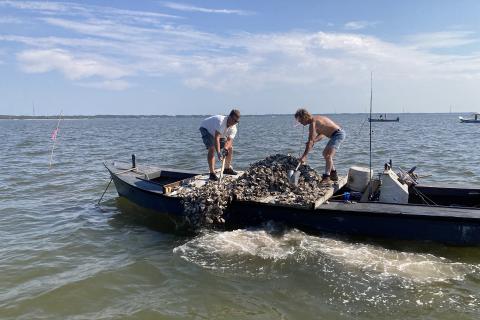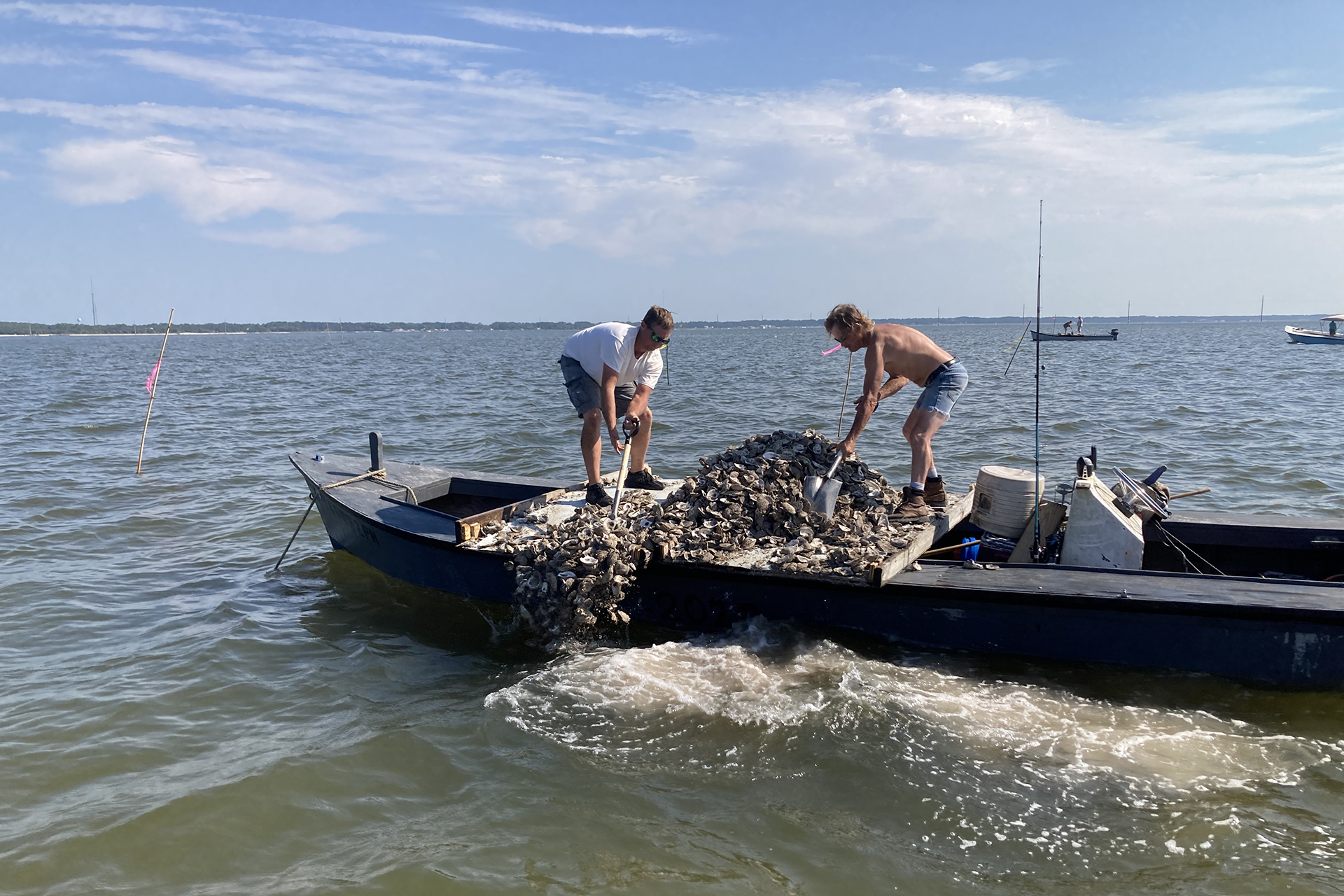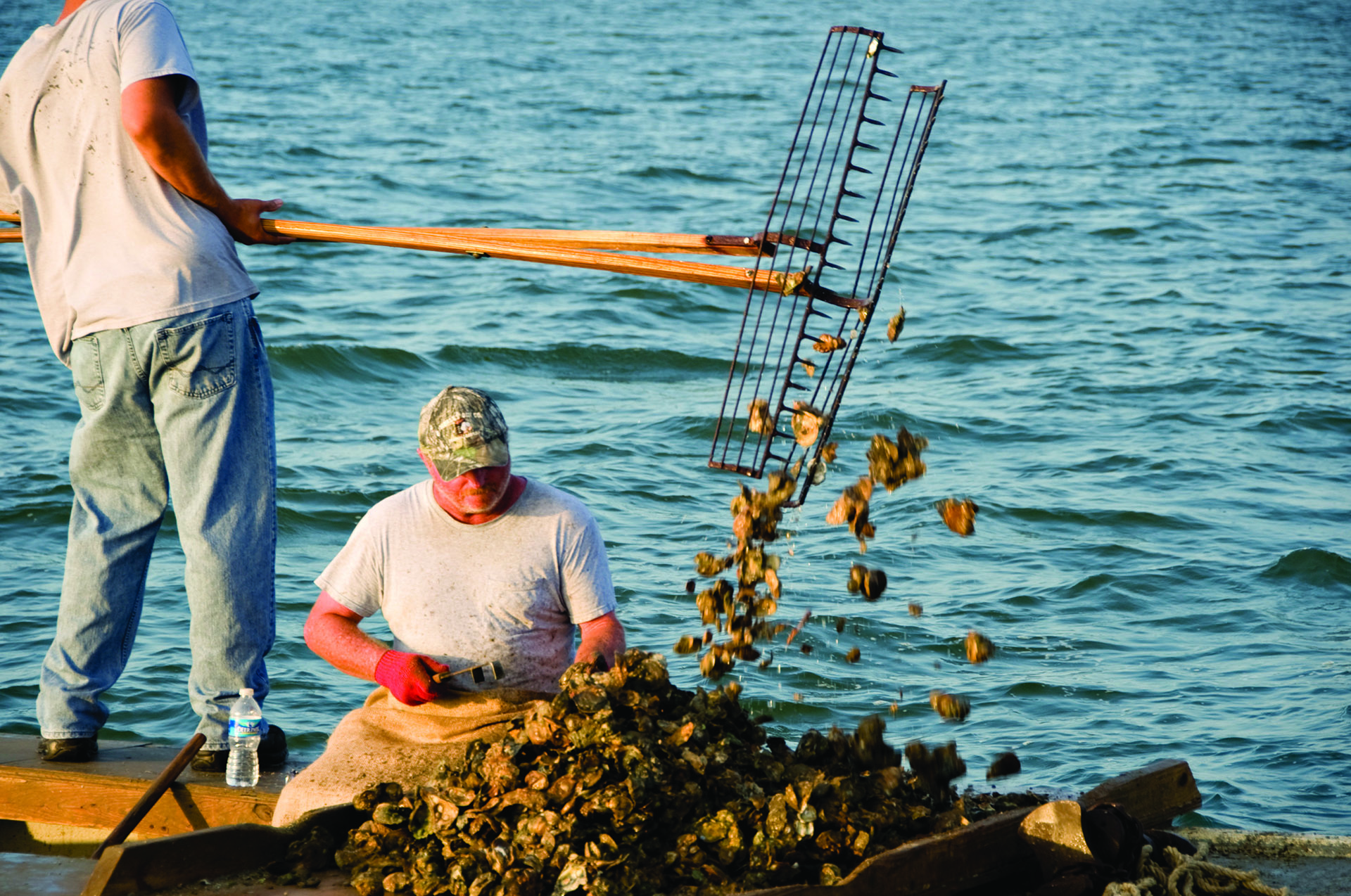
The goal of this project is to strengthen the ongoing collaborative efforts aimed at restoring and managing the Apalachicola Bay’s oyster fishery and its associated ecosystem services.
Historically, Apalachicola Bay provided 90% of Florida’s oyster products and as much as 10% of U.S. oyster production. Unfortunately, the fishery collapsed in the early-2010s and was declared a federal fisheries disaster in 2013. In 2020, state managers closed the bay to all harvest for five years due to significant decreases in oyster population and environmental conditions. The Apalachicola Bay System Initiative (ABSI), hosted at Florida State University’s Coastal and Marine Laboratory, seeks to gain insight into the root causes of decline of the Bay’s ecosystem and the deterioration of oyster reefs, and support development of plans for the restoration and sustainable management of the bay. From its outset, the ABSI has collaborated closely with the Apalachicola Reserve and facilitated user and community engagement through a community advisory board. The advisory board is set to end its work in November 2023 and be succeeded by a new advisory group that will oversee the implementation of recommended restoration and management strategies, including review of the results of restoration experiments, environmental monitoring, and restoration planning with continued community engagement.
This proposal supports the launch of the successor group and serves as a one-year bridge from the current funding to long-term sustainable funding sources. The successor group will be a permanent, representative long-term group that will advocate for the adoption and implementation of a restoration plan long into the future. Project deliverables include five successor group meetings and one community outreach meeting, a final report with recommendations for project management improvement and long-term funding of the Apalachicola Bay restoration efforts, and a website containing relevant documents from the transfer project.
An introduction to "Partnership for a Resilient Apalachicola Bay."

